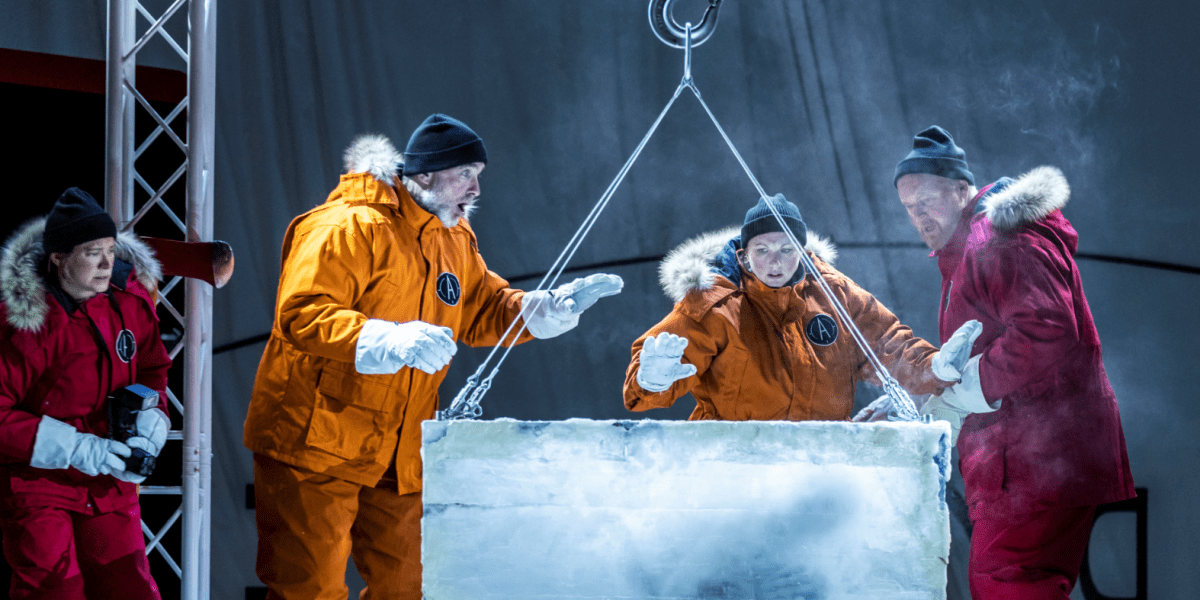Scottish Opera makes a very welcome visit to London, bringing their newly commissioned opera by composer Stuart MacRae and librettist Louise Welsh. It deals with what happens when a group of scientists on an expedition led by an eccentric millionaire, Harry King, make an unexpected and sinister discovery. They are searching in Greenland for clues about why the ice is melting – King’s Anthropocene is the name of the boat that has brought the group to the Arctic but it also gives a heavy hint about one of the themes of the opera. As their expedition gets into more and more trouble, their individual reactions to the immediate, and long term, dangers lead to a tragic conclusion.
There are eight singers and the structure of the work is very adept at balancing the demands made on each of them – and those demands are heavy. Ice, sung by Jennifer France, sings right at the top of the soprano register. France, whose performance illuminates the opera, has an admirable ability to float the highest notes from pianissimo to forte and she marvellously portrays the other-worldly nature of the girl entombed in the ice in some long-ago time. In stark contrast, Paul Whelan playing Ross, the ship’s gloomy and superstitious captain, has some lines that are so deep in the bass register that they seem to come from his thermal boots. Mark Le Brocq playing the millionaire Harry King – a composite of Musk and Branson perhaps – is his usual ebullient self, singing with conviction even when the lines are less than convincing – “I feel my share prices shrinking”! This is essentially an ensemble piece without obvious star roles except for that of France.
The music for the orchestra is dramatic, original and persuasive and well performed under the baton of the excellent Stuart Stratford. It atmospherically conjures up the arrival of Ice, the trapping of the ship in the ice, and the sight of the aurora. The problem is that the writing for voices is not of the same standard. Too much of the sung dialogue is musically clunky, forcing singers into long-held notes, sometimes sounding strained. The favoured tempi are also generally slow and unvarying. Whilst the cold is perhaps a valid dramatic reason for slow tempi, the few moments of dramatic action do not bring the contrast that is needed. There are fine moments, for example as Ice explains how she came to be trapped in the permafrost. And the big soprano trio in Act 3, with its echoes of Rosenkavalier, almost provides the moment that is needed to frame the denouement. But the overall impression is of a composer in search of a vocal style that matches his ambitions.
The production looks right for its theme. The white drapes suggesting an Arctic wasteland, the colour-coded polar gear – the sailors in blue, the scientists in orange, the King family in red – and the simple objects that conjure up the ship itself – all work together to show that a sense of place can be effectively conveyed with the simplest tools. It’s a gripping evening of opera and, despite its flaws, the audience is drawn both into the individual tragedies and into the looming sense of a collective threat to our fragile planet.

